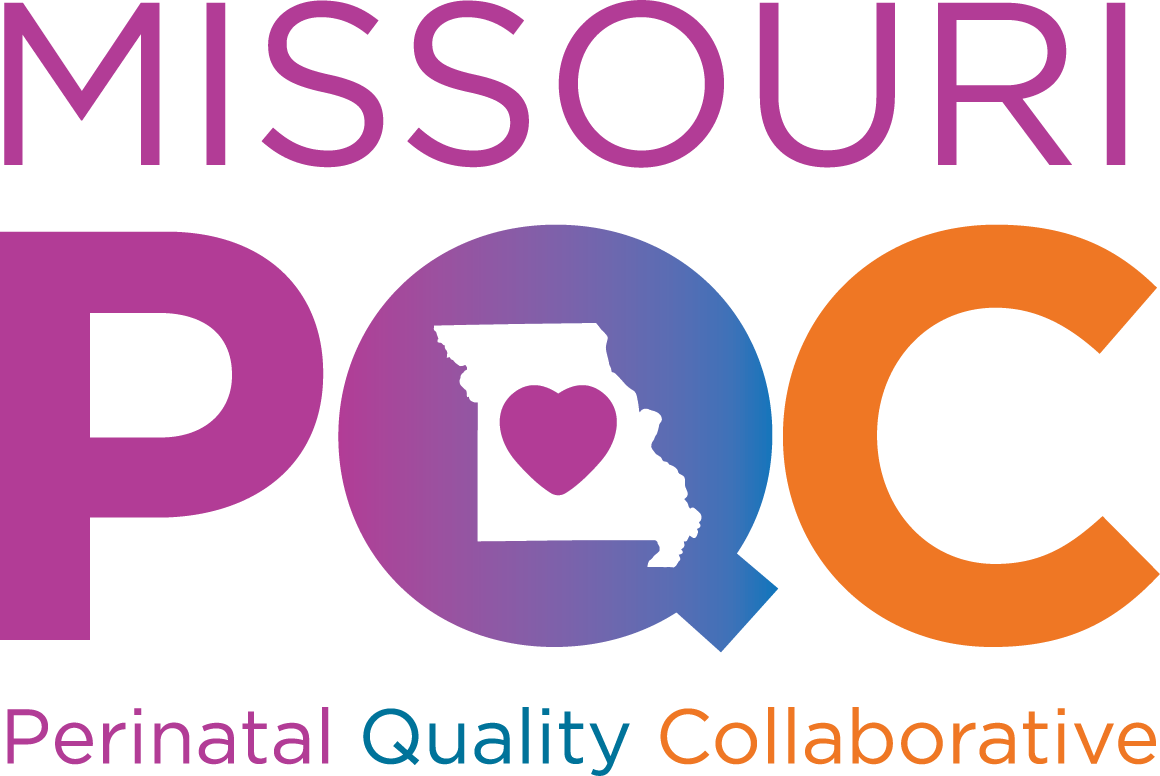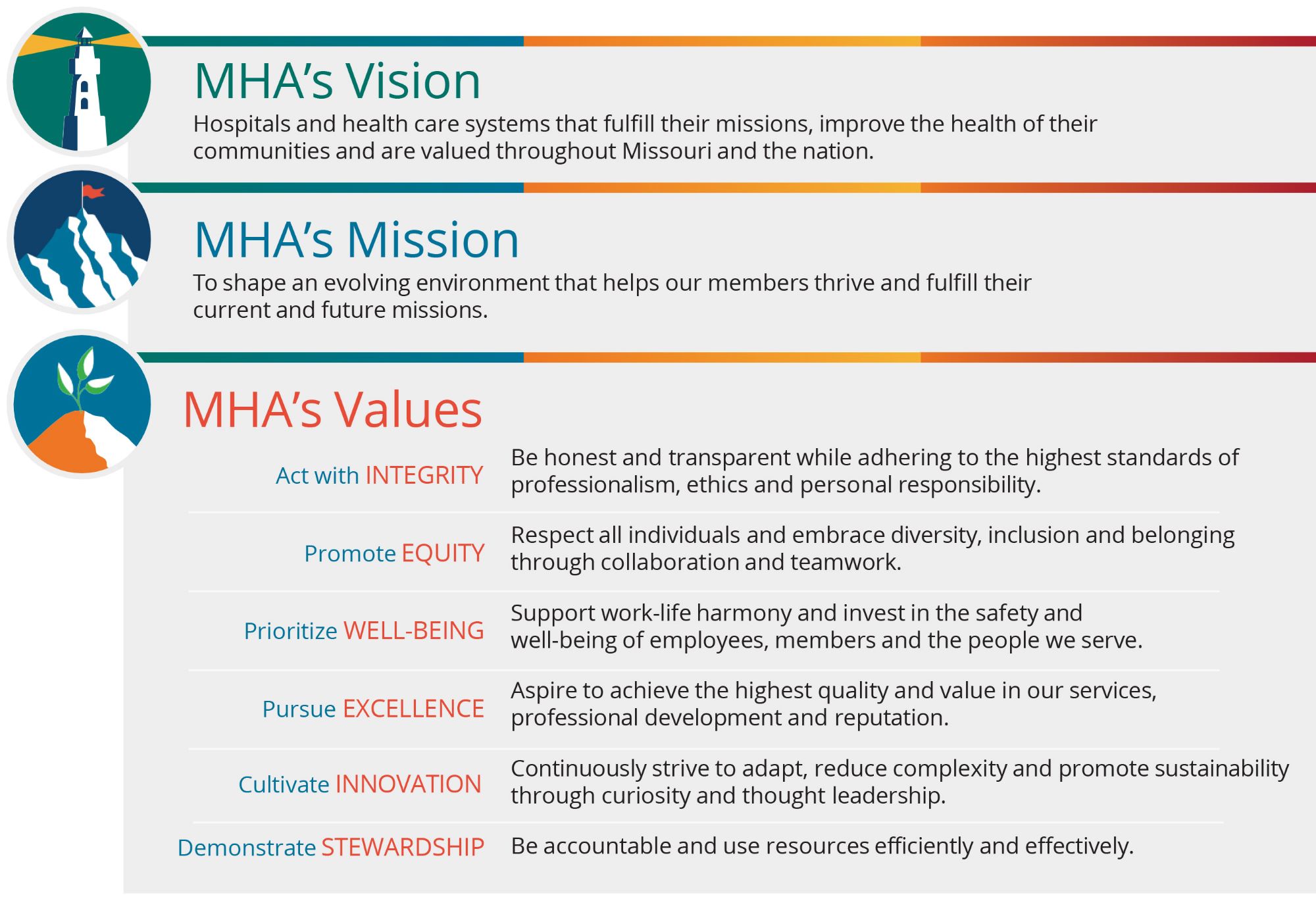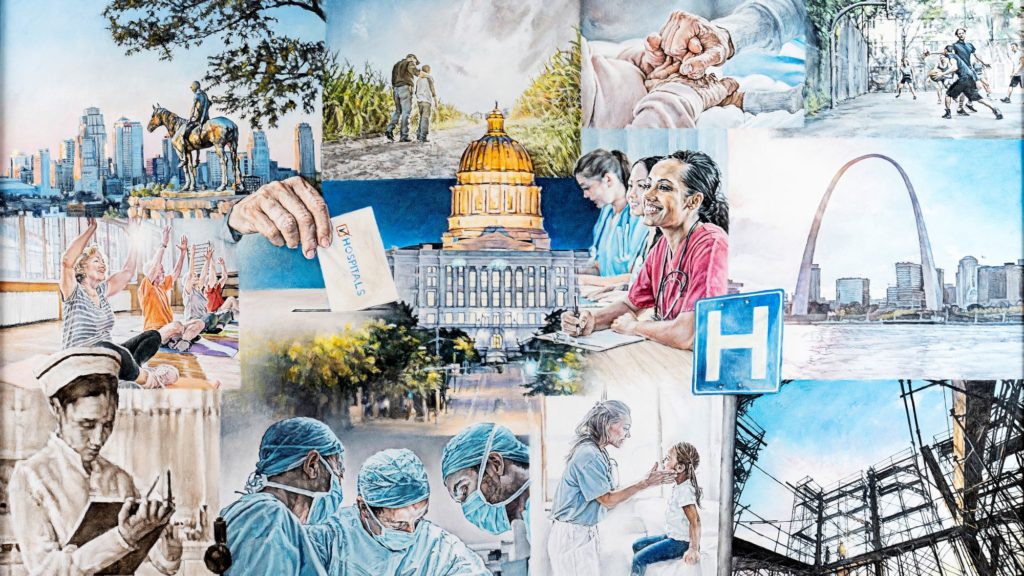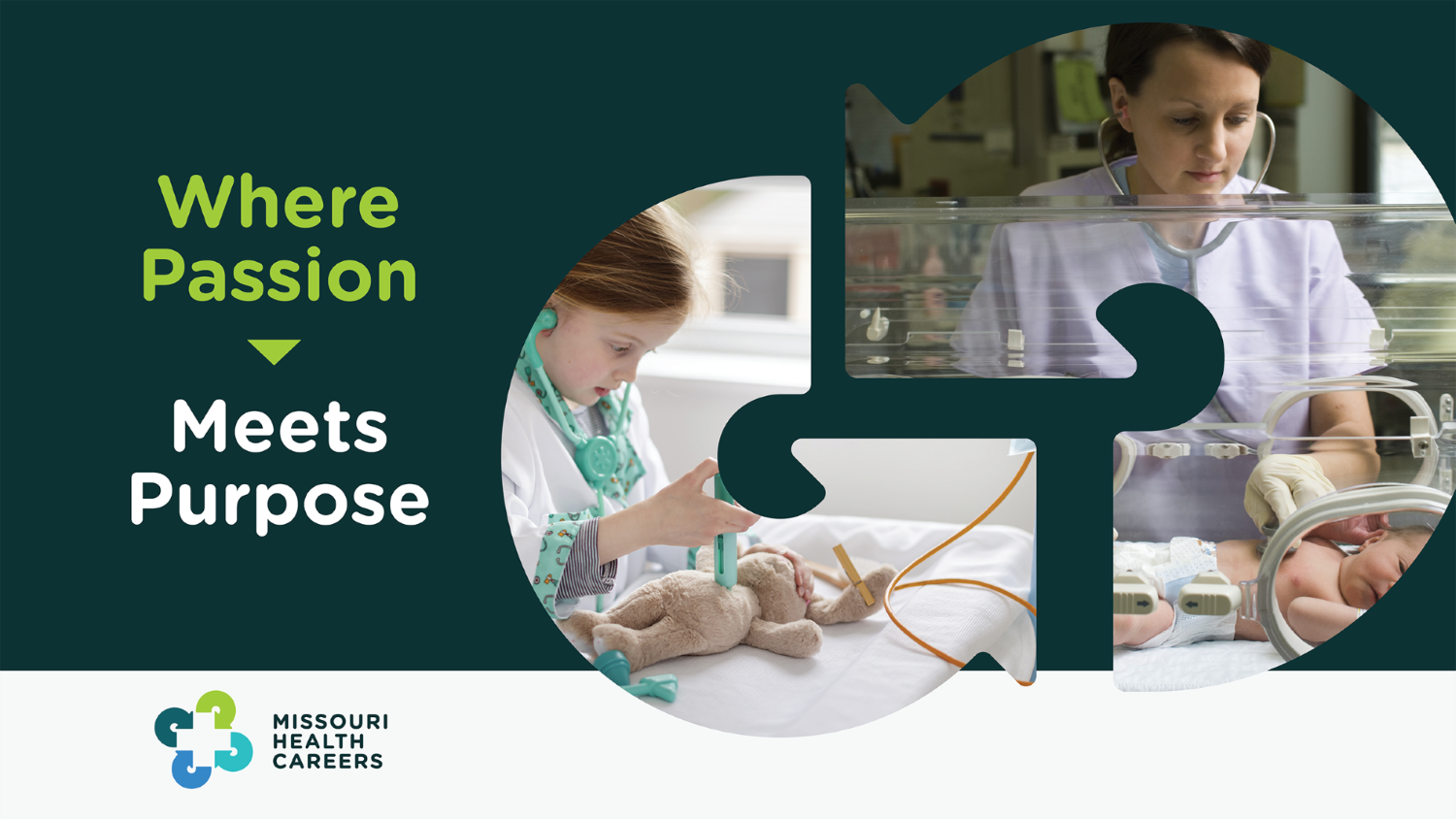
A Note From Jon D. Doolittle
The evolution of health care requires that we continually evaluate the work we do and seek opportunities to improve — clinically, and within our larger efforts to advance overall health. Success is measured by today’s victories and our preparation for tomorrow’s environment. MHA is your partner in these efforts.
Our member hospitals’ values drive our actions. Through strong advocacy, MHA works collaboratively to establish a policy and regulatory environment that supports hospitals’ missions. These efforts include traditional advocacy work with lawmakers and policymakers, and extend into the community to reinforce hospitals’ role as essential health care and community institutions. This advocacy is MHA’s core business.
Improvement extends beyond the legal and regulatory environment. Ensuring hospitals deliver the best quality of care, while developing a framework for overall health, requires a dynamic approach. MHA’s strategic goals include efforts to advance care that is accessible, reliable, equitable, and of high quality and value. The model of care constantly is changing, and MHA’s goal is to support hospitals’ foundation as the trusted center of care in Missouri’s communities. We do this guided by sound stewardship of your resources as our true north.
Hospitals are advancing toward tomorrow’s model. Advocacy, education and knowledge dissemination, strategic partnerships, and high-quality data are tools that MHA and its affiliates provide in support of strategic decision-making and operational success. Working together, we are defining the future and eliminating barriers to health and care.

Jon D. Doolittle
MHA President and CEO
A printable PDF of MHA’s 2023 Report of Accomplishments is available.
MHA helps hospitals influence legislation and policy, and provides the feedback systems that hospitals need to help them understand and adapt to change. Our first strategic goal is to produce public policy that helps hospitals and health systems thrive.
No single accomplishment provides the measure of success or failure in advocacy. The individual and interconnected policies that create space for progress and innovation — and lead to stronger hospitals and healthier Missourians — are legion. Effective advocacy requires promoting policies that support hospitals’ work, while forestalling initiatives that create barriers to progress. MHA undertakes these efforts in tandem. The MHA Legislative Guide serves as a roadmap for the agenda.
Budget, Legislation And Grassroots Advocacy
In 2023, numerous MHA board-approved priorities were adopted, including significant new state spending on hospital priorities. Within the state budget, $45 million was added to enhance Medicaid reimbursements to hospitals. This included $25 million in add-on payments for inpatient behavioral health services and $20 million in general revenue to enable a commensurate decrease in the FRA tax rate. In recognition of the growing health care workforce crisis, the Missouri General Assembly increased Nurse Education Incentive Program funding from $2 million to $5 million. To support hospital costs of boarding developmentally disabled clients of the Missouri Department of Mental Health, the General Assembly extended the $2 million appropriation to reimburse hospitals.
Multiple nonbudget-related priority bills also were adopted in 2023, including a law creating a state licensure category for federally designated Rural Emergency Hospitals, authority for responsible third parties to file Medicaid applications on behalf of incapacitated patients and further clarification of notarization requirements for involuntary commitment forms.
Numerous 2023 successes fell outside the agenda enumerated in MHA’s Legislative Guide. With MHA support, the General Assembly authorized legislation to support advanced practice registered nurses’ scope of practice, extend Medicaid coverage for postpartum women, implement the Interstate Medical Licensure Compact, establish and appropriate for state-funded residency slots in primary care and psychiatry, expand the Health Professional Loan and Loan Repayment Program, and establish a grant program for qualifying employers with employees who obtain enhanced credentials.
Although legislation limiting insurers’ pharmacy practices in the 340B Program and through white bagging of medication were not adopted, significant progress was made in 2023. Using traditional and grassroots advocacy tools, MHA targeted lawmakers with compelling patient and hospital stories. This effort, which exceeded industry benchmarks for reaching its targets, helped reshape the narrative and will continue to expand in 2024.
MHA’s work includes efforts to avoid harmful policies that would hurt hospitals and reduce their ability to serve their communities. In 2023, MHA helped to defeat several measures that threatened hospitals. These measures included legislation to impose nurse staffing ratios; modify or repeal certificate of need; prohibit diversity, equity, inclusion and belonging programs; restrict noncompete agreements; impose work requirements and annual funding discretion for the Medicaid expansion population; prohibit vaccine mandates; and require reports of workplace violence incidents to the Missouri Department of Health and Senior Services.
Legislative Accomplishments:
- Postpartum Medicaid Extension
- State Residency Authorization
- Rural Emergency Hospital Designation
- Notary Requirement Clarification
- APRN Scope of Practice Improvement
- Interstate Licensure Compact Implementation
Notable Budget Successes:
- $20 million general revenue contribution to the FRA
- $25 million in new add-on payments for inpatient behavioral health
- $5 million for the Nurse Education Incentive Program
- $2.3 million for state-funded primary care and psychiatry residency
State Medicaid And Health Policy Engagement
Advocacy extends beyond the legislative branch. The Missouri Departments of Social Services, Mental Health, and Health and Senior Services have significant influence on hospitals’ success in fulfilling their missions. Engagement with department leaders — including at the MO HealthNet Division — allowed MHA to successfully advocate for investment in structures that support hospitals’ work today, and provide input into new models that will shape their systems into the future.
MHA is working with MHD to inform the Transformation of Rural Community Health framework. To add value to these efforts, MHA established a quality improvement cohort of the ToRCH awardees to facilitate shared learning opportunities for participants and broader membership. To help improve data, HIDI was awarded funding from the Missouri Foundation for Health to build customized services to visualize performance metrics by ToRCH hospitals.
MHD continues to advance policies that influence enrollment, hospital payments and care models. In 2023, with the close of the national public health emergency, Medicaid eligibility reverification has been underway. MHA staff continue to monitor, report implications to members, and work with state and external partners to identify gaps in the reverification system.
Hospital boarding of children under the custody of the DSS Children’s Division continues. MHA staff engaged with DSS on this issue in 2023, as well as continue to participate in a stakeholder group on boarding led by Missouri Sen. Elaine Gannon.
MHA staff also continue to work with DHSS to improve the regulatory framework surrounding the Time Critical Diagnosis program. In 2023, MHA submitted a comprehensive letter outlining concerns with the survey process and attended several meetings with DHSS staff to address those concerns. The EMS community acknowledged those concerns and joined MHA in advocating for change.
Federal Advocacy
Federal rules and programs have an outsized influence on the nation’s health system. MHA works with the state’s congressional delegation and with federal agencies to make hospitals’ voices heard as policy is developed.
Alongside hospitals in 2023, MHA helped shape two Centers for Medicare & Medicaid Services rules to reform the Medicare Advantage program. One of the rules will be effective Jan. 1, 2024. It brings significant new accountability into multiple aspects of the program. The second has not been finalized, but it would support prior authorization determination, including supporting gold carding; improving timeliness; adding clarity to denials; increasing payer transparency; and improving communication between patients, payers and providers.
MHA’s advocacy led House Ways and Means Chairman Jason Smith (MO-8) and House Homeland Security Chairman Mark Green (TN-7) to submit a letter to the Federal Emergency Management Agency compelling the release of FEMA dollars owed to hospitals for COVID-19 response activities. Rep. Mark Alford (MO-4) recently authored a similar letter.
MHA advocacy helped delay Medicaid DSH cuts in the most recent continuing resolution funding of the federal government, and our advocacy will continue as Congress moves through the budgeting process this winter. In addition, MHA provided comment on five reimbursement rules, the Federal Trade Commission noncompete rule, the long-term care minimum staffing rule and the rule proposing to remedy the unlawful 340B cuts.
Medicare Advantage Advocacy
- Reduces Misleading Marketing
- Streamlines and Aligns Prior Authorization
- Improves Behavioral Health Access
- Increases Health Equity Transparency
Member Advocacy Coordination
Local voices matter. In 2023, MHA coordinated testimony from member hospitals to connect issues that matter to the front line of care. This year, MHA incorporated legislative office visits during the annual new CEO orientation, engaged hospital leaders in direct advocacy or testimony at hearings in Jefferson City, and facilitated two trips to Washington, D.C., to engage with the Missouri delegation and congressional staff.
Grassroots advocacy is increasingly driven by stories from Missouri’s hospitals. In 2023, videos to support advocacy to block white bagging and 340B abuses were produced to educate lawmakers and the public. To accompany the annual Community Investment Report, videos explaining how hospitals invest in health improvement were distributed to enhance and cement the message.
Workforce Enhancements And Investments
Among the biggest operational challenges hospitals faced in 2023 was turmoil in the health care workforce. MHA’s 2023 Workforce Report found that vacancy and turnover rates among key professions were near the all-time high experienced in 2022. To help mitigate these circumstances, MHA advocates for resources to address the workforce crisis, engages in partner-building to expand the scope of opportunity and heft of efforts, and conducts significant education and outreach to expand capacity while attracting the next generation of hospital workers.
Working with lawmakers and state leaders, MHA supported legislation to authorize and fund expansion of the Nurse Education Incentive Program, resulting in a $3 million increase over the prior year’s budget. To increase opportunities for physicians, MHA supported new state-funded primary care and psychiatry residency programs.
Retaining today’s workforce is essential. To support incumbent workers, in 2023, MHA offered 17 workforce resilience workshops to more than 650 attendees, hosted 221 participants in MHA’s Preceptor Academy and led 120 participants through Crucial Learning coursework, all of which were expansions over 2022 participation levels. To understand how violence influences the workplace, MHA reinstated data collection to quantify prevalence and support mitigation efforts. Forty hospitals are participating in data reporting.
Identifying, educating and engaging with the next generation of workers is essential to build tomorrow’s workforce. In 2023, MHA distributed nearly 10,000 career guides, partnered with stakeholders to support Virtual Health Care Career Day 2023 where more than 8,500 students and 400 counselors and educators participated, and significantly grew engagement on MHA’s health career portal, MissouriHealthCareers.com.
MHA’s ongoing investments in strengthening the workforce pipeline will improve our ability to deliver programmatically and increase engagement by adding an additional workforce team member in MHA’s 2024 budget.

Health Improvement And Care Delivery
Improving patient and community health requires more than just great clinical care. It increasingly demands an understanding of the externalities that drive poor health and outcomes anchored in social determinants of health. MHA is delivering the knowledge and tools necessary to help hospitals improve health equity, enhance individual and community health, and drive value.
In January, HIDI deployed a robust set of interactive health equity dashboards to help hospitals better understand their specific patient populations and to support compliance with new requirements from The Joint Commission and CMS. During implementation, robust technical and educational programming was provided to maximize the dashboards’ value. A second complementary set of dashboards is scheduled for release by the end of 2023.
MHA inaugurated an in-person Health Equity Summit in March 2023, and established a diversity, equity, inclusion and belonging affinity group that meets bimonthly. More than 164 hospital staff engaged in the effort.
To extend health equity knowledge, MHA offered educational programming virtually and in person. This included a five-part virtual series on health equity and SDOH, as well as an eight-part equity-centered, trauma-informed care series. In the metro areas, MHA partnered with the American College of Healthcare Executives to deliver equity-focused programming through the Kansas City Metropolitan Healthcare Council and the St. Louis Metropolitan Hospital Council.
MHA knowledge and HIDI data provide a framework for community health improvement and in community health needs assessments. In 2023, MHA inventoried member hospital CHNAs for themes and catalogued them on MHA’s website. Implementation plan templates were developed and socialized with members for the top 10 areas of focus. Further, staff produced Overdose Education and Naloxone Distribution Guidance to support hospital awareness, because mental health and substance use were the top two identified needs in the CHNA inventory. To help hospitals assess the transition from volume to value, MHA deployed the third triennial population health assessment. Ninety percent of acute care hospitals and 100% of critical access hospitals completed the assessment and will receive reports in December 2023.
Missouri’s 2023 Pregnancy-Associated Mortality Review again finds that the state fairs poorly for maternal mortality and morbidity. MHA is helping hospitals improve the clinical aspects of care and leading the effort to coordinate stakeholders to address the health challenges before, during and after pregnancy that contribute to poor mother and child outcomes.
In 2023, MHA continued its partnership with the Alliance for Innovation on Maternal Health and the Maternal-Child Learning and Action Network to deliver evidence-based practices and resources to the front lines of care. This year, four quality improvement bundles were made available to 59 birthing hospitals — substance use disorder, obstetrical hemorrhage, severe hypertension and neonatal abstinence syndrome. In addition, the MO NAS Eat Sleep Console efforts produced results — reducing transfer rates of NAS-diagnosed infants, increasing nonpharmacologic treatment as a first-line intervention, and increased screening for maternal substance and opioid use disorders by 48%.

Building on last year’s success in securing initial funding to formalize a statewide perinatal quality collaborative, in late 2023, MHA was awarded funding to lead the PQC’s efforts. These efforts to build strong, trust-based partnerships allowed MHA to attract $3.35 million dollars in new funding for calendar year 2024 to support health equity and population health improvement. The new awards focus on maternal health, diabetes prevention and substance use programming.
MHA’s quality and safety team delivers knowledge to improve care. In 2023, an emergency department-focused Lean Six Sigma cohort earned hospital professionals 26 green belts and five black belts. These efforts exceeded the 2022 level for Lean Six Sigma participants.
The ongoing pharmacy production challenges have led to shortages of essential hospital supplies. In 2023, MHA’s preparedness staff used two statewide queries to monitor operational disruptions within EDs and inpatient settings. In addition, MHA staff facilitated regular calls with specific constituencies to identify where disease states and supply chain shortages intersected.
Powering Innovation And Operational Excellence
Hospital decision-making is underpinned by data. Delivery of high-value, actionable data is an MHA and HIDI core competency.
HIDI’s powerful analytics suite informs hospital decision-making by turning data into business intelligence — providing insight into market share, risk management, quality improvement and more. In 2023, HIDI continued to expand services and invest in planning to shape the company’s long-term return on investment for participating hospitals and partners.
Advantage Fundamentals includes secure and simple data collection tools for accurate and reliable data. Advantage Optics turns data into business intelligence using HIDI data curation, reports and dynamic state-of-the-art data visualization. Advantage Analytics transforms data into insights to support better decisions, forecast trends and seize opportunities. HIDI’s data power advocacy, quality improvement, innovation and strategic partnerships — for MHA and for the state’s hospitals.
MHA is a venue for knowledge transfer. Hospital leaders participate in large events like the MHA Convention and Leadership Forum, as well as focused seminars and webinars on priority topics, to build knowledge and connect. These offerings represent MHA’s evolution in the way must-know information is delivered to hospitals. To maximize your ability to provide employees with educational programming, MHA provides each hospital a limited number of coupons to offset costs and encourage participation.
MHA is committed to helping hospitals solve problems by offering trusted services to support strategic and operational requirements. The MHA Management Services Corporation’s Background Check Advantage™ program serves as a trusted partner to meet business and regulatory requirements for hospitals as employers. MSC also partners with hospitals on CHNAs, and MHA is building connections to extend this expertise beyond traditional partners to support health improvement activities.
For more than a century, MHA has provided a forum for hospitals to identify issues and solve problems. Maintaining that legacy while transforming the organization to deliver solutions is our promise. That means a sustainable association focused on strong governance, engaged members, dedicated staff and fiscal strength.
MHA is committed to financial stewardship of member resources and value for dues investment. MHA continues to actively attract opportunities for funding outside of member dues to support programs that benefit Missouri hospitals and the communities they serve. MHA’s dependence on dues as a percent of total association revenue is among the lowest in the nation.
As your association, MHA is committed to ensuring hospitals have both the tools they need to succeed and the policy environment to focus on health care and health improvement.
MHA’s goal is to help hospitals serve their communities. To achieve this goal, we’re committed to understanding hospitals’ needs, delivering superior value for members, and helping hospitals build the connections that help them succeed today and in the long term.




















